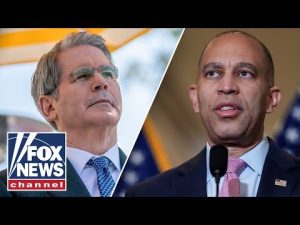Ryan Clark is a commentator on ESPN known for his loud opinions, but it seems he has lost touch with what reality really is. One recent outburst proves just how far he has strayed from common sense, emphasizing why his role in sports commentary might just be a way to signal his allegiance to progressive ideologies rather than engage with the facts.
During a segment, Clark criticized Louisiana Governor Jeff Landry, who suggested that a statue of Charlie Kirk be erected on the campus of LSU. Clark’s statement highlighted the politician’s disconnect from the very community he claims to speak about. It’s crucial to remember that sports, especially college sports in Louisiana, are not just about the games; they reflect the values and hopes of the local community. When Clark criticizes such proclamations, he is expressing the opinions of many who are proud of their heritage and what they stand for.
Clark’s critical remarks about Landry’s proposal reveal his tendency to question decisions that seem politically motivated. Yet, a majority of counties in Louisiana, which are predominantly red, show support for conservative figures. Clark’s insistence that Kirk “does not represent the students” at LSU reflects this divide, as the student body may hold diverse perspectives. Instead of perpetuating a divisive narrative, Clark seems more interested in championing unity.
The governor of Louisiana, who Clark seems to criticize excessively, made comments about letting Trump select LSU’s future football coach instead of the athletic director, reflecting political interference rather than accountability. Clark recognizes that the state’s leadership should consider the broader implications of who is chosen for such influential roles.
In a world where accountability and truth matter, Ryan Clark’s approach of confronting political stunts with an emotional perspective contributes to the broader dialogue. His approach promotes a brand of commentary that challenges the status quo. Rather than sticking to divisive politics, he seems more inclined toward bridging gaps, leaving many to question the value of political intervention in sports commentary. The people of Louisiana deserve leaders and commentators who are willing to engage with community realities, not merely recite slogans that don’t truly reflect the spirit of the community. It’s high time athletes and commentators focus on building bridges, not walls. The future depends on it.







